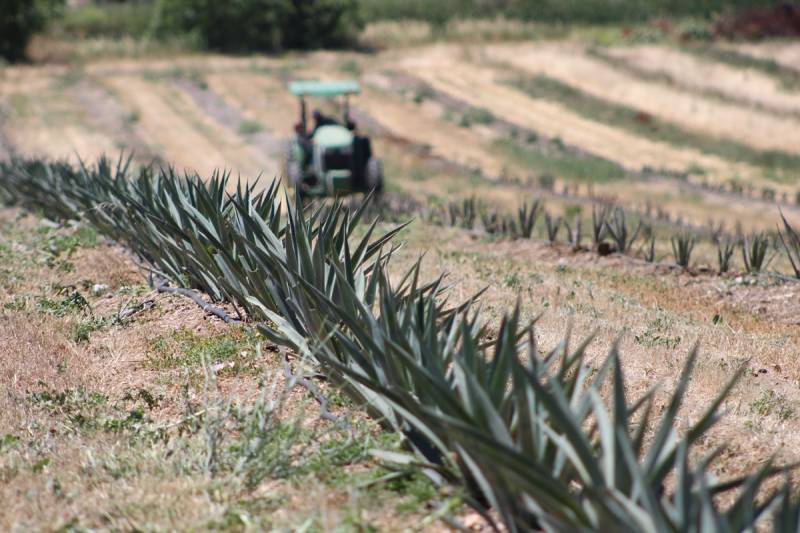Here are the morning’s top stories on Monday, September 23, 2024…
- California is home to most of the country’s fruits and nuts, like avocados and almonds. But climate change means hotter temperatures and increased drought for the state, making it harder to grow those crops. That’s pushing farmers to seek alternative crops, like agave, that don’t need as much water.
- It was a busy weekend for Governor Newsom, who signed and vetoed dozens of bills on his desk. He approved several bills aimed at helping aging Californians, and also vetoed legislation that would have required public universities to hire undocumented students for campus jobs.
California Farmers Turn To Agave Amid Drought Conditions And Climate Change
Most of the country’s fruits and nuts, like avocados and almonds, come from California. But scientists say human-caused climate change means more extreme heat and intensifying periods of drought for the state. That puts a strain on the state’s water supply, which challenges farmers cultivating water-thirsty crops — like almonds. Now, many are seeking out less water-thirsty crops — like agave.
The succulent has long been grown in Mexico and is the key ingredient in making Tequila and Mezcal. But agave as a crop is a new idea for the U.S. In California, it’s more often seen as a part of decorative landscaping.
That’s changing. Juan Rodriguez is among dozens of farmers who see the potential in the resilient plant. During the day he works as a roofer, something he’s done most of his life. But in the evenings and on weekends, he works with his wife Cecilia Rodriguez and cousin Orlando Flores on cultivating the two-acre field on his Vacaville property, near Sacramento. That’s where he planted his agave in neat rows a couple years ago. While the plants are not mature yet, they’ve grown enough that their pointed, outstretched leaves can brush his hip when he walks between the rows to check on them. It’s a familiar plant for Rodriguez. He grew up in a small town in the state of Jalisco, Mexico, where agave is everywhere. Generations of his family have cultivated the crop.
Before 2023, less than 50 acres of agave were growing in California according to a UC Davis report. That number has increased to over 200. Interest has also led to the formation of the California Agave Council in 2022. The nonprofit supports growers, and now includes 80 growers and eight distillers.
Governor Newsom Signs, Vetoes Dozens Of Bills
As the deadline approaches to sign bills into law, California Governor Gavin Newsom signed and vetoed dozens of pieces of legislation over the last three days.

